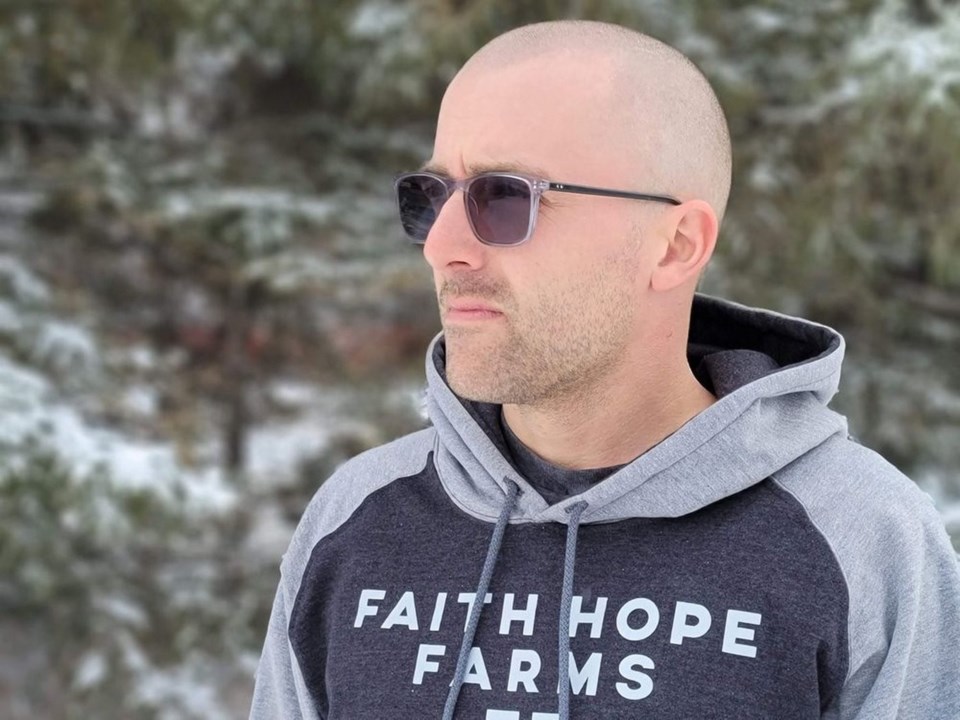The Saskatchewan farmer's his breezy, off-the-cuff, third-person narration from behind a phone camera has attracted millions of online views for his YouTube channel.
"I talk about the pros and cons, and that's just how Mike has always done videos," Mitchell said.
Call it Farm TV, but aside from entertainment, it can dispel myths about modern agriculture, he added.
His roughly 10- to 30-minute videos documenting daily life on a Saskatchewan farm are part of a growing trend of farmers reaching out to consumers with slice-of-life videos.
The reality TV elements of farm YouTube may also point to a desire among urban consumers, who've grown detached from rural lifestyles, to reconnect with the sources of their food.
That approach has drawn viewers ranging from other farmers comparing notes to urban dwellers intrigued by authentic farm life.
Whatever it is, it's popular. Mitchell has accrued roughly 162,000 subscribers on YouTube.
Mitchell, a movie buff, aims for a realistic but entertaining representation of farm life, with all the attendant chores and frustrations.
He seeds, fixes machinery and patiently explains every minute detail so that every viewer can understand what happens next.
Some entries have gained millions of views. Michell said the most popular tend to include shots of farm equipment getting stuck and breaking down.
His page on Patreon, an app where users subscribe and pay monthly fees to content creators to be more personally connected, has about 900 subscribers.
This article won't share where he farms because some uninvited fans have even tracked him down.
Last spring, three unbidden viewers showed up in his yard looking for autographs and photos. Mitchell asks that viewers at least contact him beforehand.
He also doesn't do it for the cash. However, for other producers, Farm TV is a side income that relies on connecting with an audience over notoriously unreliable rural internet.
A 2020 online survey of roughly 500 self-selected farmers by the Agricultural Producers Association of Saskatchewan found 75 per cent of participants were dissatisfied with their internet connections.
Rural internet woes even throw up road blocks for Mitchell.
"It's not unheard of for Mike to run to Swift Current, which is about a four-hour round trip at 200 miles, just to upload two videos and then come back and do it again within two days," Mitchell said.
Internet issues aside, he's not the only one with a wide following.
Jan Kielstra, better known by his YouTube handle SaskDutch Kid, has 158,000 subscribers watching the expanding chronicles of life on a dairy farm.
When he had about 70,000 subscribers, he conducted a survey among them and was surprised to learn about half were other farmers. They like to see how their peers do business, but there may be something else to it, Kielstra said.
"People like farming. I think there's a lot of people that don't have a connection to a family farm anymore, and they still are interested to see how their food is produced.
"You see a lot of people on social media saying, 'I bought a new house or I bought a new Lamborghini.' This is just about going to go milk some cows."
Milking cows resonates enough for SaskDutch Kid to market a clothing line. Kielstra sells shirts, hoodies and caps on his website.
The income from his YouTube exploits is solid, but it's also not a huge impact on his dairy operation, he said.
He's a farmer first, and sees the YouTube channel as a way to counter some of the negative press dairy operations can get.
"Open the doors to our farm, give people a view inside of what our operations look like and they can like that or not based on the video," he said.
Nicholas Moreau, also known as Â鶹´«Ã½AV Sask. Farmer, has also expanded into merchandise with a similar set of wares emblazoned with his YouTube logo.
He also attributes his channel's success to a sense of authenticity. Moreau swears, drives a combine with his kids snacking in the back seat, and runs into bad spells of weather and luck, like this summer's drought.
"I hate videoing it, but it's part of it. People have to see," he said.
He isn't so keen on other channels from outside of the province, who sanitized their image after building popularity on YouTube, he said. For him, it's more important to be honest on the channel.
You won't find Mike Mitchell begging viewers to hit the "like" and "subscribe" buttons, either.
He refuses all sponsorship offers, for the simple reason that he doesn't want anything limiting his freedom. He also turns down anyone offering to film for him — part of a running joke where Mitchell calls himself a human GoPro.
His philosophy behind the camera is straightforward: just act naturally.
"I'm the same person on YouTube as I am in real life," he said. "In fact, I probably tone it down."




